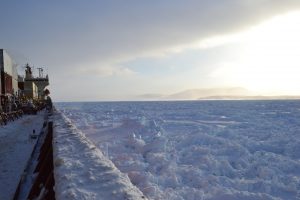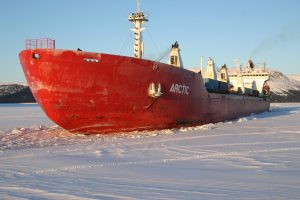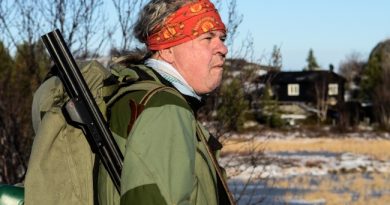Shipping company using drones in the Arctic
Shipping in the Arctic is no easy task.
Distances from southern Canada to the country’s High Arctic is long. Trips can be slow going, with captains navigating through hazardous ice up to one and a half metres thick.
But one Montreal-based shipping company called Fednav thinks they’ve found a way to make the going a little bit easier by using drones to and from Canada’s High Arctic.
Currently, captains navigate through treacherous ice with satellite software that sends images to the ships. But still, nothing can beat seeing the conditions first hand. Especially when the costs of running these ships to the Arctic runs from $70,000 – $100,000 per day.
“If we can save a day of sailing, it’s very significant,” says Tom Paterson, Fednav’s Senior Vice-President, Shipowning, Arctic and Projects.
Drones in the North
Intrest in employing drones throughout the circumpolar world is increasing in everything from mining to the oil and gas industry.
In Canada’s northwestern Yukon territory, prospectors are using unmanned aerial drones to survey land for gold deposits.
In Alaska, unmanned aircraft have been used by research institutions like the University of Alaska Fairbanks to monitor sea lion populations. And this summer, increased commercial use of drones is anticipated in Arctic Alaska by resource companies.
Live view of sea conditions
Fednav’s drones are fitted with a camera and function as mini-helicopters that allow the captain to see ice conditions in real time and adjust navigation accordingly.
“We see these small drones on television, and see that they can take great footage,” Paterson says. “So the idea was, why don’t we take them on the ship and put them up into the Arctic and if they can give us some good technology and some good viewing ahead.
“If we can save money and save fuel it helps everything – the environment and our customers.”
Fednav Drones from Fednav Limited on Vimeo.
Write to Eilís Quinn at eilis.quinn(at)cbc.ca
Related Links:
Canada: Drones help Yukon prospectors find gold deposits, CBC News
Finland: New Finland icebreaker can operate sideways with asymmetrical hull, Yle News
Russia: Russia, icebreakers and Arctic identity, Blog by Mia Bennett
United States: Civilian drones set to take flight over Arctic Alaska, Alaska Dispatch










